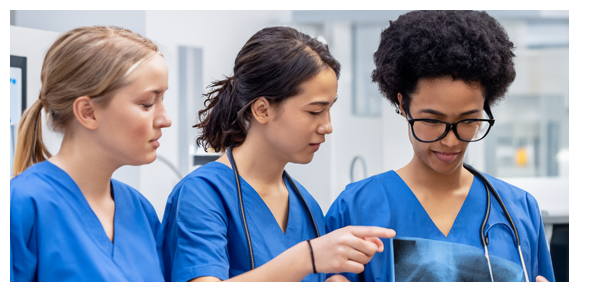Please Note: There are unfortunately currently no supernumerary (foreign) trainee specialist surgeon vacancies available.
Post-doctoral, doctoral, masters and South African trainee specialist surgeon (registrar) candidates may apply via our Contact Us page. For Elective students, please read the relevant section below.
We welcome M.Sc.(Med), Ph.D. and Post-doctoral (Cardiovascular Research Unit) and M.Med. (as part of registrar training in our Clinical Division) applications.
FRAMEWORK FOR SUPERNUMERARY REGISTRARS
Please note that foreigners are not eligible to be employed in a paid registrar position in South Africa - these are all government paid positions and reserved for South African citizens. As such you will need sponsorship to cover the costs of your stay in South Africa and for your University and College registration and examination fees.
1. For anyone to register as a supernumerary registrar with the Health Professions Council of South Africa (HPCSA) and to obtain the necessary Visa, registration with a higher education institution is a prerequisite. Please visit the HPCSA web site.
2. The cheapest of these registrations is for an M.Med. degree as it is 75% subsidized (because registrars are also teaching undergraduate students). The M.Med. fee of less than R 5,000 annually compares with an M.Sc. (Med) fee of nearly R14,000. This means that the University registration is an absolute pre-requisite for supernumerary training rather than an expectation towards a degree.
3. In contrast to an M.Sc.(Med) or an M.Phil. degree, which does not require an additional exam (both are 100% thesis based), the M.Med. degree will only be bestowed once the part II examination FC (Cardio) (see 4 below) has been passed. Should a supernumerary registrar decide to change registration from M.Med. to M.Phil. or M.Sc.(Med) the registration fee for the latter needs to be paid for one year. Unfortunately, the M.Sc. and M.Phil. degrees do not qualify for subsidy and therefore the cost of registration correspond with that of all other Masters degrees (R12,000 annually). In addition foreigners from a non-SADEC country need to pay an additional government fee of around R19,000 annually for these other degrees – apparently non negotiable. However one only needs a minimum of one year’s registration for M.Sc.(Med) or M.Phil. degrees.
4. Regarding the part II examination (exit examination) for the M.Med. degree and specialist training in cardiothoracic surgery in general, a candidate should have completed his general surgical component (Intermediate Exam or equivalent) before commencing the cardiothoracic training. The exit examination (for the M.Med. part 2) is the final FC (Cardio) examination as set by the Colleges of Medicine of South Africa twice annually (see College web-site for the current regulations).
5. It is our opinion that under the current circumstances and those of the recent past, one needs 5-6 years of continuous cardiothoracic exposure before obtaining a proficiency level for this exit examination.
6. As of August 2006 the Fellowship of the West African College of Surgeons qualification has been recognised as a waiver for the intermediate exam of the SA Colleges of Medicine and there may be other qualifications which can gain a candidate exemption from the primary ad intermediate examinations – for example the British MRCS degree.
7. Therefore, as supernumerary Registrars from Nigeria are now no longer disqualified from writing the final college exams and the college exam is the official M.Med. part II exam, there will be no longer any University-based M.Med. part II exams.
8. Supernumerary Registrars from other countries whose Fellowship is not recognised as an “Intermediate Exam” equivalent, need to write both ‘Primary’ and ‘Intermediate' exams of the College of Surgeons before being allowed to register for the ‘Final Exams’.
ELECTIVE STUDENTS
Please note that, although the University of Cape Town welcomes students for elective training at a teaching hospital under the auspices of the Faculty of Health Sciences, advance application at least 1 to 2 years before commencement is strongly advised where possible. Please email your enquiry to Kelly Crowster and ensure you include the following information:
- Subject line: "<Year of placement> Elective Placement" (example: 2018 Elective Placement)
- The discipline you intend to follow
- The exact start and end date for your intended elective
- Your Curriculum Vitae outlining your level/exposure of practical experience
- Proof of registration from your university
- A scan of your valid passport
Note that students are only allowed to complete an elective in one division/department and are not allowed to split. Also bear in mind that we may only be able to accommodate you for a maximum of 8 weeks, depending on the number of students accepted during this time.
Your email does not in any way guarantee you a placement in the programme as the outcome is dependant on a review process.
PERFUSIONISTS
Please note that our department operates in a third-party capacity with South African Universities of Technology to train Perfusion students, however all course/training-related queries need to be directed to one of these Institutions:
Durban University of Technology; Central University of Technology; Tshwane University of Technology
If you are a qualified Perfusionist wanting to practice in South Africa, please direct your queries to the Health Professions Council of South Africa.
You can also contact us directly for further information by submitting a query from our 'Contact us' page found in the top menu.
